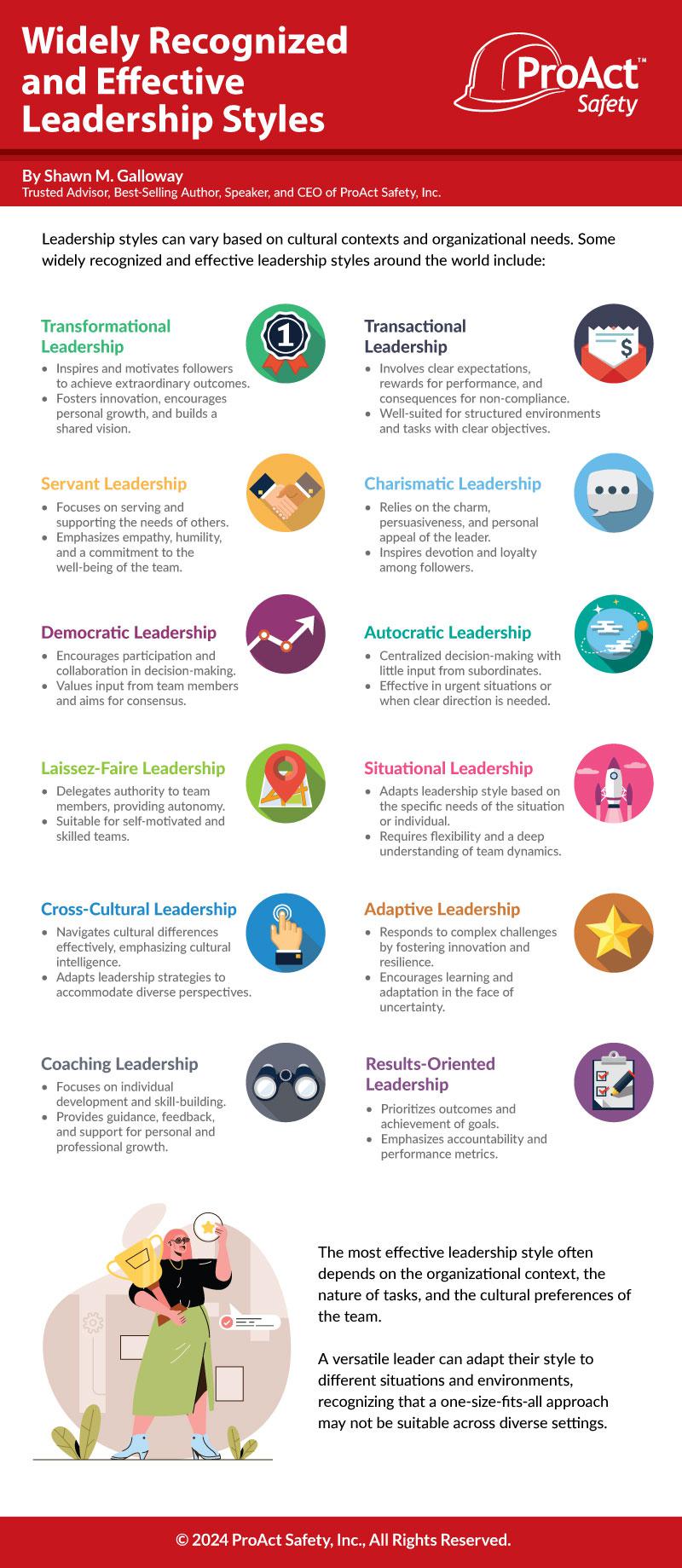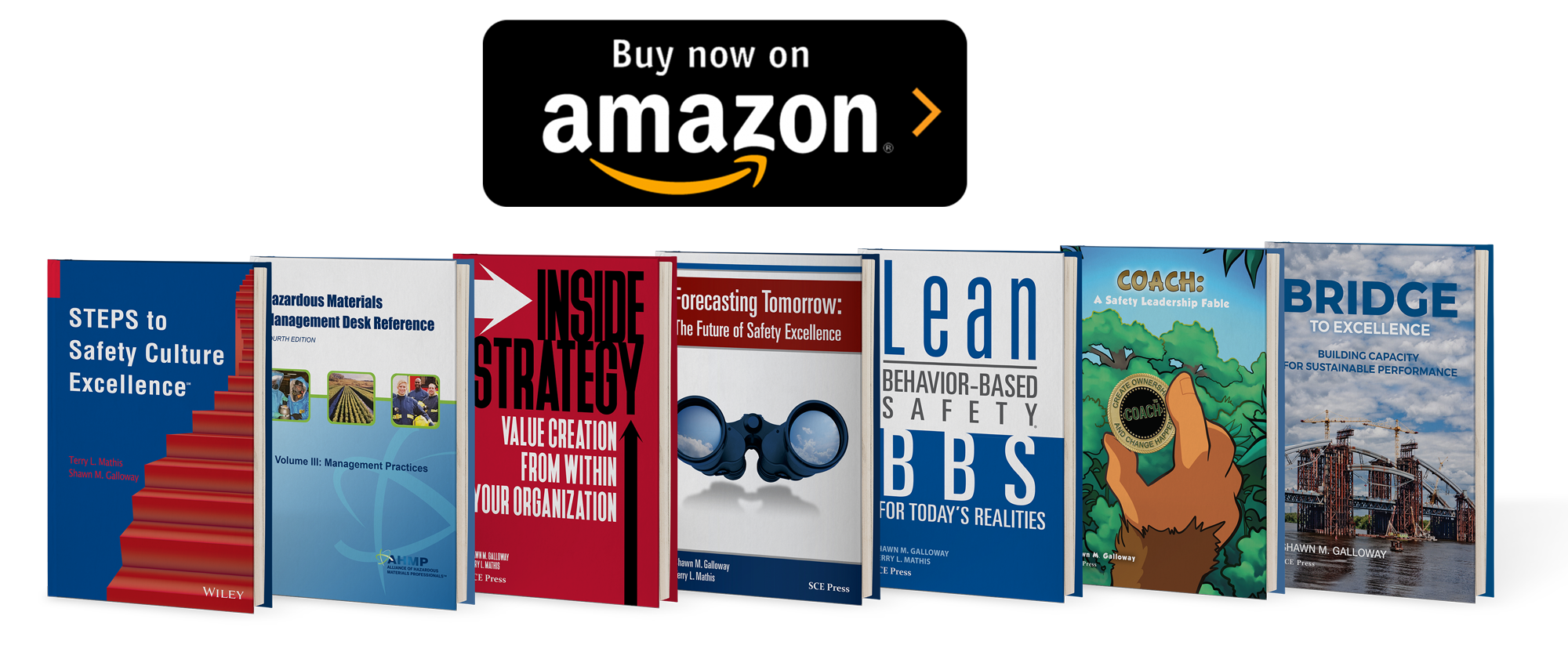January 15 2024
By: Shawn M. Galloway
Finding the right leadership style for your team and culture is crucial for the success and growth of any organization. Effective leadership is not a one-size-fits-all approach. It requires understanding the unique dynamics of your team and aligning your leadership style with the values, goal, and needs of your organization's culture.
Finding the right leadership style is important because it directly impacts employee engagement and productivity. Different individuals have different work styles, motivations and communication preferences. A leader who can adapt their style to meet the needs of their team members can create a positive and inclusive work environment where employees feel valued and supported. This, in turn, leads to higher levels of engagement and productivity.
Additionally, the right leadership style can foster a culture of innovation and creativity within the organization. By understanding the strengths and weaknesses of your team members, you can leverage their unique skills and perspectives to drive innovation and problem-solving. A leader who encourages open communication and collaboration can create an environment where new ideas are welcomed and nurtured.
Furthermore, the right leadership style can help build trust and loyalty among team members. Trust is the foundation of any successful team, and a leader who demonstrates integrity, transparency and empathy can earn the trust and respect of their team. When team members feel supported and valued, they are more likely to be loyal to the organization and go above and beyond to achieve its goals.
Finding the right leadership style also involves understanding and adapting to the organizational culture. Every organization has its unique culture, including its values, norms and beliefs. A leader who aligns their leadership style with the culture of the organization can create a sense of cohesion and unity among team members. This alignment helps to create a shared vision and purpose and fosters a sense of belonging and commitment among employees.
Some widely recognized and effective leadership styles around the world include:
Transformational Leadership:
- Inspires and motivates followers to achieve extraordinary outcomes.
- Fosters innovation, encourages personal growth, and builds a shared vision.
- Focuses on serving and supporting the needs of others.
- Emphasizes empathy, humility and a commitment to the well-being of the team.

- Involves clear expectations, rewards for performance, and consequences for non-compliance.
- Well-suited for structured environments and tasks with clear objectives.
- Relies on the charm, persuasiveness and personal appeal of the leader.
- Inspires devotion and loyalty among followers.
- Encourages participation and collaboration in decision-making.
- Values input from team members and aims for consensus.
- Centralized decision-making with little input from subordinates.
- Effective in urgent situations or when clear direction is needed.
- Delegates authority to team members, providing autonomy.
- Suitable for self-motivated and skilled teams.
- Adapts leadership style based on the specific needs of the situation or individual.
- Requires flexibility and a deep understanding of team dynamics.
- Navigates cultural differences effectively, emphasizing cultural intelligence.
- Adapts leadership strategies to accommodate diverse perspectives.
- Responds to complex challenges by fostering innovation and resilience.
- Encourages learning and adaptation in the face of uncertainty.
- Focuses on individual development and skill-building.
- Provides guidance, feedback, and support for personal and professional growth.
- Prioritizes outcomes and achievement of goals.
- Emphasizes accountability and performance metrics.
Finding the right leadership style for your team and culture is essential for creating a positive work environment, driving productivity and innovation, building trust and loyalty, and fostering a sense of unity and purpose. Effective leaders understand the individual needs and strengths of their team members, adapt their style accordingly, and align their leadership with the values and goals of the organization's culture. By doing so, they can inspire and empower their team to achieve success and contribute to the overall growth and success of the organization.
"The day soldiers stop bringing you their problems is the day you have stopped leading them." — Colin Powell
"…which animal the ruler should impersonate depends strongly on what animals the followers are." — Geert Hofstede
"In matters of style, swim with the current; in matters of principle, stand like a rock." — Thomas Jefferson

Shawn M. Galloway is CEO of the global consultancy ProAct Safety. He is a trusted advisor, professional keynote speaker, and author of several bestselling books on safety strategy, culture, leadership, and behavior-based safety. He is a monthly columnist for several magazines and one of the most prolific contributors in the industry, having also authored over 700 podcasts, 200 articles, and 100 videos. Shawn has received awards and recognition for his significant contributions from the American Society of Safety Professionals, National Safety Council's Top 40 Rising Stars and Top Ten Speakers, EHS Today Magazine's 50 People Who Most Influenced EHS, ISHN Magazine's POWER 101 - Leaders of the EHS World and their newest list: 50 Leaders for Today and Tomorrow, Pro-Sapien's list of The Top 11 Health and Safety Influencers and is an Avetta Distinguished Fellow.
